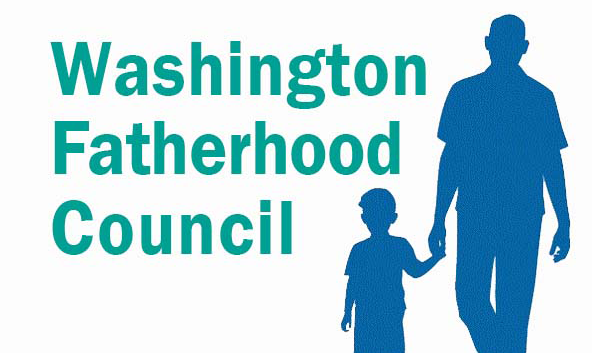By Nurture Connection
Dads matter. They’re vital to the social and emotional development of their children. But too often, they’re not included in support and education on positive parenting. The Washington Fatherhood Council—a collaborative that advocates for dads and includes more than 35 Washington state and local service providers, academics, and fathers— connects dads to resources they need to parent well.
During a video discussion on fatherhood, panelists raised the issue of cultural bias that sees dads as financial providers but not emotional nurturers—or, worse, ignores and erases fathers in positive parenting narratives altogether.
For some fathers, parenting can be disrupted due to trauma, poverty, incarceration, chemical dependency, intimate partner violence or divorce. It’s critical to break the cycle of missing dads and help them form healthy connections to their babies and children. There’s a lot of data, says Anne Stone, Director of the Washington Fatherhood Council, showing that involved, loving fathers have a positive impact on their young children’s health and social-emotional development. Conversely, dads’ absence is tied to poor outcomes for adolescents and young adults.
Even for fathers without additional stressors, there often aren’t parenting resources available to help them navigate the new terrain of fatherhood. That’s especially true for low-income, single and BIPOC dads. Many systems assume that dads don’t want to be involved in their children’s lives. They’re considered an afterthought, notes father of two Dieter Jacobs, a Washington Fatherhood Council leader.
“We’re spectators in our own experience,” says Jacobs, who works for Washington’s Department of Social Health Services. “We’re often not given the tools and support we need to really know what to do.”
There’s also a societal bias that assumes moms always know what’s best for babies—and dads don’t. As Washington Fatherhood Council leader Jose Romo Ramirez, who works for the state’s Special Supplemental Nutrition Program for Women, Infants, and Children (WIC), points out, a lot of fatherhood is simply showing up and doing repetitive parenting tasks. These everyday tasks include caring, feeding, cleaning, soothing, making eye contact, snuggling, talking, reading and playing. These routines help early bonds form between baby and daddy.
It’s important, then, to lift up dads and give them the encouragement and confidence they need to step up their parenting. Dads need positive reinforcement just like any of us. A little goes a long way to build confidence and reassurance. You don’t need a master’s degree to parent—dads are already inherently important to their children’s ability to thrive.
Listen in as panelists suggest ways to increase fathers’ involvement, including training on how to have positive disagreements, dedicated support for new fathers’ mental health needs, and parenting classes for dads with diverse life experiences—including dads who are divorced, single and non-cohabiting. These services need to be marketed creatively and tailored to target audiences. Dads should also lead events, discussions, planning, and organizing. Learn more about these services and opportunities here.
This blog is part of Nurture Connection’s “ERH in Action” series of listening and learning sessions. Our network is full of meaningful examples of people and organizations promoting ERH in their daily lives and work. Our new “ERH in Action” series highlights and uplifts stories from various fields to share learnings, challenges, and bright spots in the movement.
